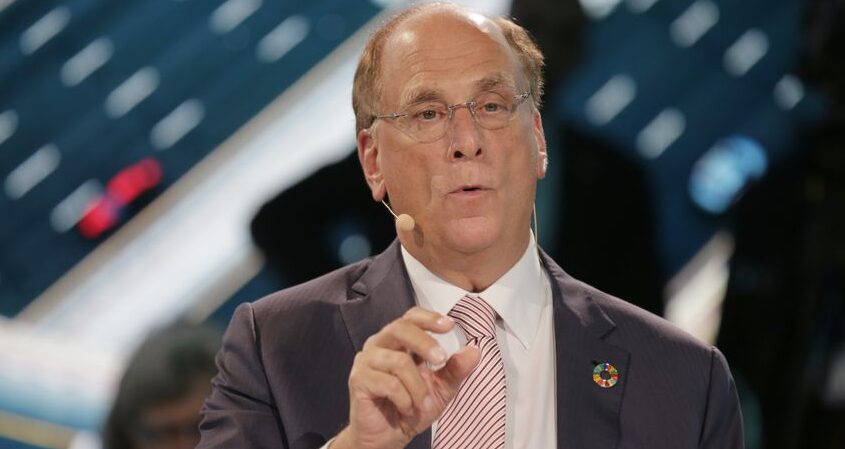The Great ESG Exodus: Why $22 Billion Fled “Woke” Funds in 2025
If you still have BlackRock in your 401(k), you might want to check which bedside your savings wake up on. At end-July 2025, the market hit a jaw-dropping $22.3 billion in net redemptions from U.S. ESG-labelled funds (1). Almost every dollar swung into vehicles proudly pitched as conservative investment alternatives, we believe the clearest sign yet that the anti-ESG investing wave is no headline cycle but a permanent vote of no-confidence.
The Retail Revolt, Not a Capitol Hill Plot
Between January and March, individual investors moved eight dollars for every one dollar pulled by public-employee systems (2). Most of that $9 billion first-quarter avalanche occurred after BlackRock’s January shareholder letter insisting “climate transition scores” remain a fiduciary necessity (3). The firm’s own July earnings call admitted that subsequent retail hemorrhaging “reflects sentiment more than regulation” (4). By May, redemptions were still running $2–3 billion a month even after Congress stripped federal ESG incentives (5), in our opinion, proving this isn’t political theater, it’s consumer rage.
Geography of the Retreat
Texas again tops the absolute-state ledger: its comptroller tabulated $4.7 billion of public-money outflows (6). Yet per-capita sprint honors go to Florida, Arizona, and, notably, suburban counties in Illinois and California, working-class households everywhere realized that a 0.48 % expense ratio on “sustainability” funds skims an extra $2,250 a year against a 0.03 % plain-index clone on a $500 k rollover (7).
Performance Vindication Came Quick
An S&P-tracked basket of the ten most-despised ESG ETFs is down 6.4 % YTD, while its anti-ESG substitute peers are up 12.1 %, beating both the ESG subset and the S&P 500 itself by 3.40% after stripping the worst offenders (8). In other words, dropping the sermon delivered extra alpha.
How to Finish the House-Cleaning in 15 Minutes
Export your 401(k) holdings to CSV, drag the file through Gab AI’s “ESG Exposé” free dashboard, and swap any flagged tickers into the plain-index equivalent the tool offers. The move is capital-gains-free in a qualified account (9). Just don’t be fooled by newly relabeled “Sustainable Leaders” or “Climate Focus” share classes whose prospectuses still weigh governance scores above cash flow (10).
Bottom line: the $22-billion ESG exodus is a market verdict. Americans picked stewardship over scolding, and Wall Street is learning to adjust, one angry handshake at a time.
Disclaimers:
Constitution Wealth, LLC, a registered investment adviser with the Securities and Exchange Commission (SEC). Registration of an investment advisor does not imply any specific level of skill or training and does not constitute an endorsement of the firm by the commission. Constitution Wealth only transacts business in states in which the firm is properly registered or is excluded or exempted from registration. A copy of Constitution Wealth’s current written disclosure brochure filed with the SEC, which discusses among other things, Constitution Wealth’s business practices, services, and fees, is available through the SEC’s website at https://adviserinfo.sec.gov/firm/summary/313916. All investments involve risk. Information presented is for illustrative purposes and are not guarantees of, or projections of future performance. Forward-looking statements, such as “may,” “will,” “should,” “expect,” “intend,” “continue,” or “believe,” or the negatives thereof should not be relied upon as a guarantee, assurance or a representation as to the future. Such statements are a belief based on trends, however due to various risks and uncertainties, actual events, results or actual performance may differ. Additionally, investments in the market are influenced by many factors, including, but not limited to general and local economic conditions; changing levels of competition within certain industries and markets; changes in interest rates; changes in legislation or regulation; and other economic, competitive, governmental, regulatory, and technological factors affecting a portfolio’s operations that could cause actual results to differ materially from projected results. Historical data shown represents past performance and does not imply or guarantee comparable future results. Information and statistical data contained herein have been obtained from sources believed to be reliable but in no way are guaranteed as to accuracy or completeness.
Sources
- Morningstar Direct, “U.S. Sustainable Funds Flow Report – July 2025 Monthly Update”, July 2025.
- ICI, “Quarterly Net Issuance by Fund Category”, Table 3-B: Mutual Fund Retail vs. Institutional Flows, 2Q 2025 prelim., July 15, 2025.
- SEC EDGAR, BlackRock Inc., Form 8-K, Exhibit 99.2 shareholder letter, Jan 26, 2025.
- BlackRock Inc., “Second-Quarter 2025 Earnings Call”, transcript via S&P Global Market Intelligence, Aug 2, 2025.
- U.S. Congressional Budget Office, “Cost Estimate: H.R. 22 – FY 2025 Omnibus”, March 18, 2025.
- Texas State Comptroller, “Texas Treasury 2025 ESG Divestiture Annual Report”, updated Certification letter filed April 3, 2025.
- ICI, “2025 ICI Fee Survey”, median annual expense ratios comparison table, August 2025.
- S&P Dow Jones Indices, “Index Return Spread Analysis: ESG versus Bare-Index”, July 29, 2025 dashboard. Indexes are unmanaged and cannot be invested in directly. Returns represent past performance, are not a guarantee of future performance, and are not indicative of any specific investment.
- Gab AI Inc., ESG Exposé Dashboard, free screening tool, accessed July 30, 2025. Constitution Wealth and Gab AI Inc. have no direct affiliation. As with all Artificial Intelligence (AI) platforms, such content is provided for informational purposes only and should not be relied upon for any specific purpose without human verification of its accuracy or completeness.
- SEC Form N-CSR filings, sample “Sustainable Leaders” fund prospectus S-1/A, April 8, 2025 (tickers omitted to preserve generality).
Elon Musk's Bold Stand Against Wokeness at Disney: A Candid Interview Sparks Controversy
In the ongoing battle against what he perceives as the stifling effects of wokeness, Elon Musk has once again taken the spotlight by making a daring statement in a recent interview. This time, Musk aimed his criticism directly at Bob Iger, CEO of Disney, expressing his frustration over what he sees as the company’s embrace of excessive political activity.
Musk’s unfiltered comments during the interview have sparked controversy and shed light on his ongoing efforts to combat wokeness at Disney.
The Interview Exchange:
In a recent interview, Elon Musk did not mince words when discussing Disney’s advertising practices. He openly expressed his dissatisfaction with Bob Iger, the former head of Disney, accusing the company of succumbing to wokeness and, as a result, not advertising on his platform, X.
Direct Criticism of Bob Iger:
Musk’s candidness was on full display when he directly told Bob Iger to “go f*** himself” for Disney’s decision not to advertise on X. This bold statement not only grabbed headlines but also underscored Musk’s frustration with what he perceives as the negative impact of wokeness on Disney’s business decisions.
Concerns Over Wokeness in Advertising:
Musk’s frustration is not only about Disney’s advertising choices but also about the broader trend of companies prioritizing wokeness over pragmatic business decisions. By calling out Disney in such a public manner, Musk is drawing attention to what he believes is a problematic prioritization of ideological conformity over traditional business values such as maximizing investor return.
Elon Musk’s Ongoing Battle:
This recent interview is just one episode in Elon Musk’s ongoing battle against wokeness, particularly at Disney. Musk has consistently criticized the company for what he sees as a decline in creativity, stifling of diverse thought, and an overall departure from the family values that once defined Disney and made it one of the world’s great brands.
Encouraging Corporate Accountability:
Musk’s outspokenness serves to encourage corporate accountability. By challenging industry leaders and making his grievances public, he prompts discussions about the potential consequences of prioritizing wokeness over other essential business considerations. He’s using his bully pulpit as the world’s richest man.
Elon Musk’s recent interview, where he took on Bob Iger and Disney, underscores his commitment to fighting against what he perceives as the encroachment of wokeness in the corporate world. While his unfiltered comments may be controversial, they highlight Musk’s determination to ensure that creativity, family values, and innovation are not sacrificed on the altar of ideological conformity.
As the debate around wokeness in corporate culture continues, Musk’s bold stand is sure to fuel discussions about the delicate balance between politics and preserving the core values that define successful and innovative companies.
Progressive ESG vs Conservative ESG
The differences between the types of ESG and the difference areas they encompass.
Progressive ESG
Conservative ESG
Environment
Environment
Social
Social
Governance
Governance
How to Implement Conservative ESG into Your Portfolio
Did you know that you could use ESG and support conservative companies? It’s possible and we cover 5 simple steps on how you can start implementing Conservative ESG in your portfolio starting today.
1. Determine Your Basic Asset Allocation Plan
This guide is about implementing a values bias to your investments. There are plenty of resources on how to build a basic portfolio that balances diversification and risk, based on your goals. Do that first with your advisor or on your own.
2. Determine Your Values-Based Criteria For Investment
Where do you stand on abortion, 2nd amendment rights, free speech, immigration, global warming theory, foreign wars, foreign aid, equality of opportunity vs equality of outcome, gambling, porn and adult themes, tobacco, alcohol, and recreational drugs, family support (including LGBTQ, drugs, violence, and language)? Feel free to add any other issues that matter to you.
Another important aspect of corporate behavior to consider is political support. The companies you own may not be funding black lives matter directly, but they may be supporting politicians who are supporting these factions. Find out about political donations, fundraisers, etc., that these businesses may be making, and make sure they comport with your expectations.
3. Decide On Your Strategy
Are you going to refuse to buy companies that violate your values? Are you going to refuse to buy more of them? Are you going to reduce your current investment in them? Are you going to be an activist investor and hold evil companies in your portfolio, but use your ownership status as a shareholder to hold them accountable?
These are all viable methods. Make sure you know which one (or more than one) you will be using.
4. Implement Your Strategy
You can gather research and news information about companies online or you can use an advisor/fund to do it for you. Either way you will want to construct a portfolio of companies who have investment potential, but who do it ethically, according to your values.
Obviously the more you do it yourself, the more control you have. In terms of impact however, using an advisor and/or fund and pooling your dollars with other patriotic investors may be more effective. Constitution Wealth discovered this early on as we began this journey. Part of why woke ESG (aka mainstream ESG as opposed to conservative ESG) is so effective is that they have pooled capital into large fund firms who speak with one powerful voice. Pooling funds gives you a massive advantage, while offering less customization.
If you are going to be doing activist investing and demanding corporate accountability as a shareholder, you may wish to begin learning about how to pressure bad businesses to change their behavior. You can write about it, attend corporate board meetings, call the CFO, or do it through media appearances. It’s up to you or those you hire for the job.
5. Monitor Your Portfolio
Once you have set up your investments, you will need to monitor them. First of all, are they still aligned with your financial goals such as retirement, charitable impact, or education funding? Second, has company behavior improved or declined relative to the assessment you originally did?
You will need to make these assessments dynamically and act in response with buys, sells, and activism on a regular basis to have the most impact.
These 5 steps should give you a framework for thinking about how to use your hard earned savings to make the world a better place.
Please let us know if we can help.
What is Conservative ESG?
What used to be called socially conscious investing (and was mostly a conservative concern) has morphed into something called Environmental, Social, and Governance investing (ESG) and is being promoted everywhere you look in financial services. (See Chart)
Oddly, it is viewed primarily via the lens of leftists. To the promoters of this latest permutation of socially conscious (values based) investing, “environmental” means: global warming/cooling/climate change and its cousins pollution, and deforestation mostly.
What is Modern ESG?
Under modern ESG, “social” typically means racial diversity, critical race theory, health and safety (loss of medical autonomy), and left leaning ideas of social justice such as equal pay outcomes for certain groups, etc. (e.g., LGBTQ+, women, minorities, etc.) Gun control, free speech censorship, and the elimination of Christianity from all public institutions are goals too.
Finally under “governance”, most left leaning ESGs pursue the compliance and punishment of those not adhering to the goals of the previous two categories.
This includes things such as racial, sexual orientation, and gender of corporate boards and governing bodies. Carbon emission control schemes and taxation. Policing of executive compensation and political contributions are emphasized as well.
All of these concepts are seen from the left-leaning perspective and we believe are designed to steer the world towards the collectivist, atheist, oligarchical vision of humanity’s future. If conservative, patriotic Americans don’t start investing in their own values, these left wing values will become mandatory for corporate behavior. (see Disney, Google, Facebook, Netflix, Amazon, ATT/CNN).
Left-leaning Wall Street investment firms, who control a great deal of the voting rights of their shareholder clients, will use that massive power to promote this world view, undermining the views of their actual shareholders.
What Would Environmental, Social, and Governance Investing (ESG) Look Like For Me?
As conservatives wake up to the fact that their ideological opposites are using investment capital to undermine the things they believe in, patriots are going to wonder, “What would ESG look like for me?”
Environmental Testing
Let’s see. Environmentally, conservatives might be concerned with public lands use rights. (e.g., hunting, fishing, camping, mineral extraction). Private ownership and use of public goods such as land, water, and air rather than government ownership and/or control. Generally this means freedom from government controls in the use of God’s green earth and its bounty.
Social Investing
Under the “social” category, the original focus of values-based investing, a Republican might be concerned with equal opportunity for all Americans rather than equal/preferential outcomes based on skin pigmentation, sexual behavior, and gender identification.
Immigration enforcement and protections of religious freedoms would certainly be important. Pro-family policies (e.g., abortion, porn access, and traditional marriage) and free speech would also be near the top of the list.
Governance Investing
“Governance” concerns might focus on the limitation of governance, as our founding fathers intended.
Constitutional freedoms are emphasized here such as the God given right to life, liberty, and the pursuit of happiness rather than left wing preferences such as health and safety, which infringe on individual rights.
Low taxation and regulation would certainly be important as they impinge on the individual freedoms of all Americans.
Are You A Good Steward of God's Capital?
Hopefully this brief article has given conservatives food for thought regarding how they invest their own assets.
Just “being diversified” isn’t going to cut it for $137 trillion(1) of global wealth controlled by Christians(2) worldwide. Most of us used to think, “I’ll just maximize my investment returns and use the profits charitably to reverse the unjust and immoral things my investments are responsible for.”
Does that really comport with our role as stewards of God’s capital?
Would God approve of you investing in brothels as long as you make a donation to your church?
I think not.
Next time you see the words ESG investing, think about what it means to you, and act on it.
Constitution Wealth is registered as an investment adviser with the U.S. Securities and Exchange Commission. Registration of an investment adviser does not imply any level of skill or training. The oral and written communications of an adviser provide you with information about which you determine to hire or retain an Adviser. Information about the qualifications and business practices of Constitution Wealth is also available on the SEC’s website at www.adviserinfo.sec.gov. Constitution Wealth only transacts business in states where it is properly registered or is excluded or exempted from registration requirements. Offering of asset management services through Worthpointe, pursuant to a client investment advisory agreement.
Information presented is believed to be factual and up to date, but we do not guarantee its accuracy and it should not be regarded as a complete analysis of the subjects discussed. All expressions of opinion reflect the judgment of the author as of the date of publication and are subject to change.
The views expressed in this commentary are the author’s own. Information contained herein does not involve the rendering of personalized investment advice but is limited to the dissemination of general information. A professional adviser should be consulted before implementing any of the strategies or options presented.
ESG’s Corrosion of Corporate America
Investment decisions should be based on maximizing the individual investors’ returns, both purposeful and financial. Unfortunately, more and more investors have unwittingly or unwillingly fallen prey to doing what’s in the best interest of others rather than making the best decisions for themselves.
These investment options have become one of the asset management industry’s fastest-growing investment products as well as sources of revenue, referred to as Environmental, Social and Governance. Known colloquially as “ESG,” these types of investments involve, according to Forbes, “investing in companies that score highly on environmental and societal responsibility scales.” Examples include considerations of a particular company’s carbon footprint or the diversity of its board of directors.
In just a few years, ESG has taken the investment world by storm. It’s been lauded by the likes of BlackRock CEO Larry Fink, who in his recent annual letter declared that planning for a “net-zero” future is an important part of creating “durable returns for shareholders.”
We don’t necessarily disagree with many of the goals of ESG, but the problem Mr. Fink and other proponents of ESG fail to see (or just ignore) is that companies and asset managers are implicitly expected to support ESG and invest accordingly. Otherwise, they’re likely to face the tedious task of dealing with the ruling class of social justice warriors who dominate the discourse.
Are Investors Being Disenfranchised by Fund Companies?
Most people have no idea how power and control works in corporate America. In a word, it’s complicated. Generally, the biggest owners have the most control. Sometimes, owners like Facebook’s Mark Zuckerberg, structure shares so they never lose control. He does this by issuing shares with no right to vote.
A long time ago most shares of public companies were owned directly by investors and so voting on important matters (called proxy voting) was done by the owners and votes were allocated by ownership.. The more you owned, the more influence you had. Since shares were more or less evenly distributed across the political spectrum companies stayed fairly benign in their political activism and focused on customers and returns to shareholders.
For some time now, investors have increasingly accessed the investment markets through pooled investment vehicles like mutual funds and ETFs. These make great sense from the standpoint of cost and diversification. Investors are also increasingly preferring passive investments such as index funds which mimic popular indexes and don’t employ any judgment as to company behavior or investment potential.
So, because people are buying into funds rather than stocks, many more shares of ownership are no longer registered to Mr. and Mrs. John Q Public. They are registered to giant fund conglomerates such as Vanguard, BlackRock, and State Street who collectively now own a very large percentage of most public companies. So what’s the problem?
Well, in the past these fund companies, who now control the voting power of the shares, rather than the actual owners of the fund, used to profess to be “non-active” owners. That is, they either did not vote the shares or did not seek to actively influence companies. This was linked to their emphasis, in many cases, on being “passive” investors who just buy the index. Investors were reassured that their votes would not harm or unduly influence the companies they own just because they surrendered their voting rights to the fund company through the fund structure.
Somewhere along the way, these fund companies realized that they could use the voting power they had accumulated more actively. You know what they say, power corrupts.
There was just one problem. Unlike their shareholders, the people who ran these companies were not politically balanced and diverse like their fund shareholders. They were overwhelmingly leftists who are now using the accumulated voting power of their investment customers to implement political change that many of their customers would surely not approve of.
How do they do this? Well, they’ve come up with a system of rating the political/social behavior of public companies called environmental, social, and governance (ESG). Though they argue that these ratings are related to positive investment performance, they are mostly measures of political leanings on issues such as abortion, global warming, religeous freedom, the nuclear family, equal racial and gender outcomes, racial and gender quotas on boards, etc… ie the culture war.
There are two problems with this practice. First, does it improve investment outcomes for their shareholders? Since these kinds of scores and social shaming techniques never existed before, we are dubious that pushing political issues improves investment outcomes. In fact, since these political issues tend to offend half the customer base, one could argue that it hurts investment returns. (See Disney and Netflix)
Second, is it fair or ethical to push a political agenda using the voting power of your shareholders without asking them how they feel about it? Akin to voter disenfranchisement in politics, is there a fundamental ethical problem with pushing politics in business when half of your shareholders would not agree with the political agenda? It seems to us that this is fundamentally unethical and unfair.
Should regulators and lawmakers take a look at these issues. Perhaps. Though this may take some time and, given the nature of politics, there may be no real resolution because one side is getting significant political benefit and will fight tooth and nail to keep this advantage. It’s also hard for regular people to understand how corporate power works and nobody is in a hurry to mount an educational campaign to help folks understand.
So, what can investors do to restore their political power and control as far as their investments go? Invest your money with fund companies and advisors who are either apolitical or who promote your particular views. It’s fine for investors to use political influence. Just make sure your money is being used the way you want. If not, use a fund company or advisor who shares your values or own shares directly in companies behaving ethically, according to your philosophical, moral, and ethical views.
Don’t get disenfranchised! Simply vote with your dollars.







